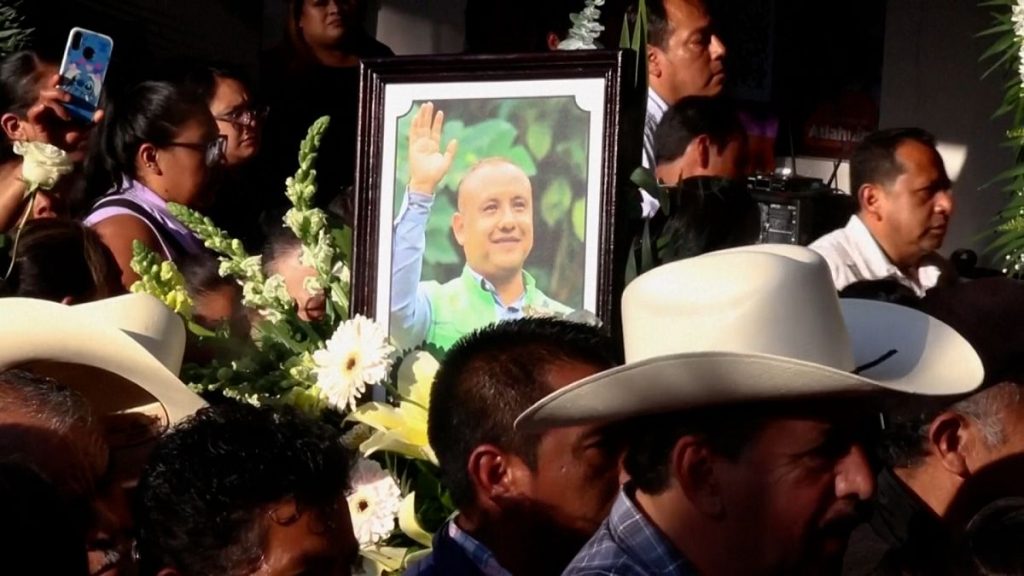Congressman Aguas Atlahua’s nascent political career was tragically cut short just three months after he took his oath of office, a stark reminder of the pervasive violence that continues to plague certain regions of the world. His assassination, following closely on the heels of another gruesome political murder – the beheading of a newly inaugurated mayor in Guerrero – underscores the precarious nature of public service in areas grappling with organized crime, political instability, and a culture of impunity. These targeted killings not only silence individual voices but also erode the very foundations of democratic governance, instilling fear and discouraging citizen participation in the political process. A deeper examination of the circumstances surrounding these incidents is crucial to understanding the complex interplay of factors that contribute to such violence and to formulating effective strategies for prevention and response.
The assassination of Congressman Atlahua and the mayor of Guerrero reveal a disturbing trend of violence targeting elected officials, highlighting the vulnerability of those who step into the political arena. These acts of violence are not isolated incidents but rather symptomatic of a deeper malaise within the socio-political fabric of the affected regions. They point to a breakdown of law and order, a failure of state institutions to provide adequate protection, and the emboldened presence of criminal organizations that operate with seeming impunity. The targeting of elected officials serves a dual purpose for these groups: it eliminates political rivals and sends a chilling message of intimidation to others who might dare to challenge their power. This climate of fear has a corrosive effect on democracy, undermining the rule of law, eroding public trust in institutions, and ultimately hindering the development of a stable and just society.
Understanding the root causes of this violence requires a multifaceted approach that considers a range of factors, including the historical context, the socio-economic conditions, and the political dynamics at play. In many instances, these acts of violence are intertwined with organized crime, drug trafficking, political corruption, and land disputes. The absence of effective law enforcement, coupled with a lack of accountability for perpetrators, creates a fertile ground for impunity, emboldening criminal elements and perpetuating the cycle of violence. The erosion of trust in state institutions further exacerbates the problem, as citizens become disillusioned with the government’s ability to protect them and increasingly turn to alternative forms of justice or self-protection.
Addressing this complex challenge requires a comprehensive strategy that goes beyond simply strengthening law enforcement. While bolstering security measures is essential to providing immediate protection for vulnerable individuals, long-term solutions must address the underlying causes of the violence. This includes strengthening judicial institutions to ensure accountability for perpetrators, promoting economic development to reduce poverty and inequality, and fostering a culture of respect for human rights and the rule of law. Crucially, it also requires empowering civil society organizations and engaging local communities in the process of building peace and security.
The international community also has a role to play in supporting efforts to combat violence against political figures and promote democratic governance in affected regions. This can involve providing technical assistance to strengthen judicial systems, supporting programs aimed at promoting human rights and the rule of law, and sharing best practices for combating organized crime and corruption. Furthermore, international pressure can be brought to bear on governments to ensure that they uphold their obligations to protect their citizens and hold perpetrators of violence accountable. International cooperation is essential to addressing the transnational nature of organized crime and preventing the flow of illicit funds that often fuel violence and instability.
Ultimately, building a more peaceful and democratic future requires a long-term commitment to addressing the root causes of violence, strengthening institutions, and empowering communities. The assassinations of Congressman Atlahua and the Guerrero mayor serve as tragic reminders of the fragility of democracy and the urgent need for concerted action to protect those who serve the public and uphold the principles of democratic governance. Failure to address these challenges will not only perpetuate the cycle of violence but also undermine the foundations of a just and equitable society. The international community must stand in solidarity with those working to build a better future and provide the necessary support to ensure that the voices of those who champion democracy are not silenced by violence and intimidation.














